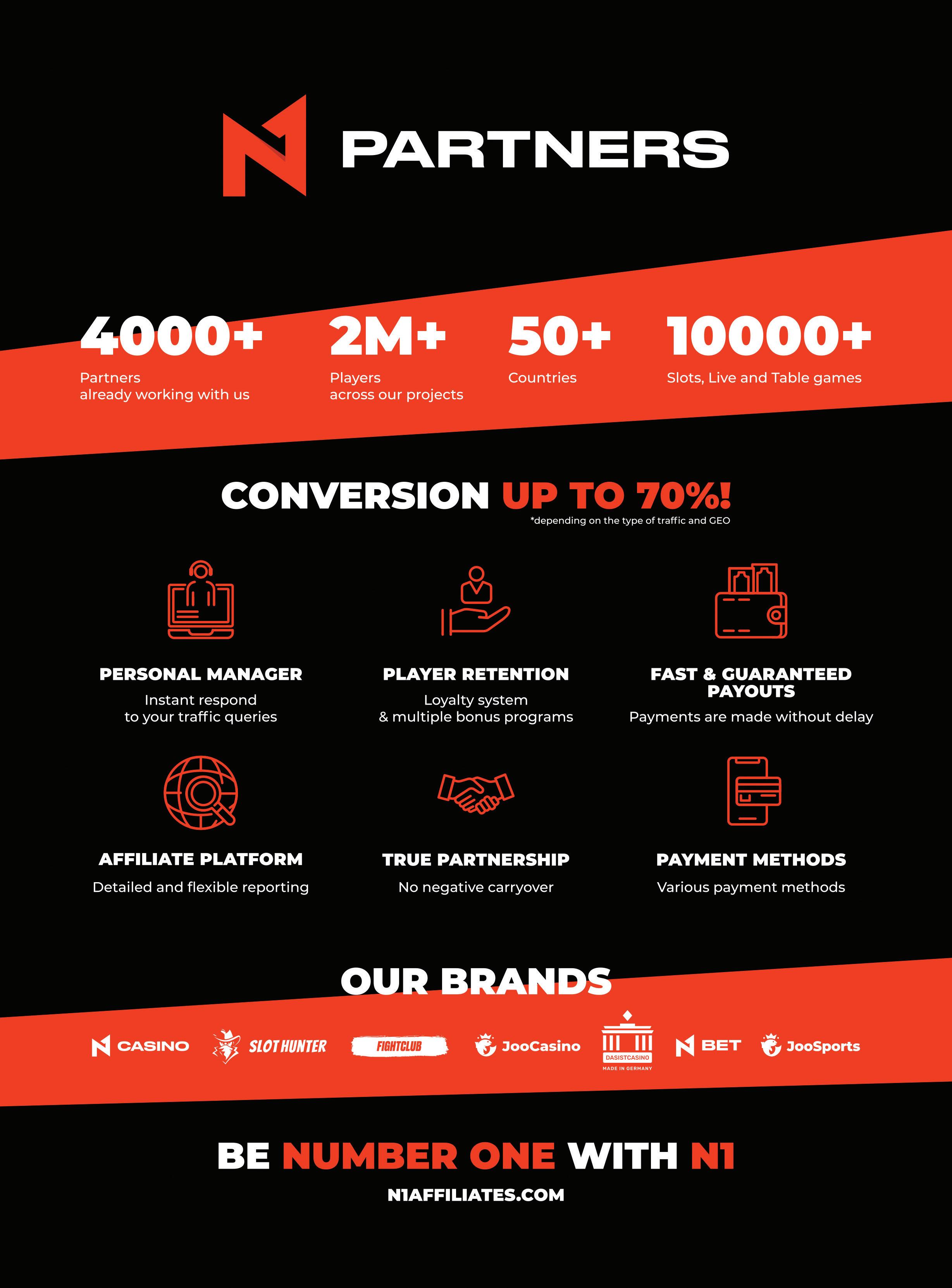
4 minute read
FINAL WORD EXACTA SOLUTIONS
Malta: An insight into M&As
As iGaming continues to emerge from the throes of the pandemic, Chris Vella and Anthony Hennessy, founders of Exacta Solutions, discuss recent M&A trends and how businesses can better prepare themselves for a successful takeover
M&A activity within the iGaming space has been experiencing unprecedented growth over the last few months, and analysts continue to point towards two main catalysts for this recent surge. In the wake of the pandemic, which effectively ground many sports to a halt, online sports betting operators began experiencing an unprecedented struggle to reach profitability. This resulted in many businesses turning towards mergers and acquisitions to generate cash flow.
Another wave of recent deals was prompted by the strategic need for cross-border expansion, as more iGaming operators seek to establish a stronger international presence. In these scenarios, stakeholders are opting to buy into existing brands to save on the time and resources typically required to build a successful betting business from scratch.
As M&A uptake is set to carry on into 2022, more iGaming businesses are looking into the potentialities of consolidating their company. However, without the right preparation and care, businesses risk losing all the competitive advantages they hope to gain. That’s why more and more stakeholders are turning to professional M&A advisors to act on their behalf, and ensure they avoid all the pitfalls of this time-consuming and highly sensitive process.
“Any successful M&A deal boils down to matchmaking. By seeking the assistance of a professional M&A advisor, businesses will gain a bridge that connects them to the right investors in this highly competitive market. Once a mutual interest is established between the two parties, advisors will also be able to assist with all the technicalities that come with M&A, from strategy and due diligence through to contractual and price negotiations,” explains Chris Vella.
However, before any business can set about finding the ideal investor, it’s essential that they outline the various objectives and outcomes they hope to achieve through an M&A deal. While some firms will simply be seeking to maximise the value of their business at an optimal moment, and may not be particularly concerned about the future of the business in question, others will want to safeguard what they feel to be essential components of their business. These could range from the corporate culture, to the core leadership team who built that company into an attractive offering in the first place. Clarifying these make-or-break negotiation details at the outset will make it easier to seek out compatible buyers.
Business owners or CEOs will also need to consider how involved they wish to remain with the business going forward. If they are planning to step away entirely, potential investors will need to feel confident the business can continue to run efficiently and gain momentum in their absence. In these scenarios, it is important to have an effective succession plan in place. This will ensure the business will be equipped with the right leadership team to oversee the transition and lead the business forward with confidence.
Vella and Anthony Hennessy have seen many businesses hold on to unrealistic expectations of their worth, which can create something of an impasse in negotiations. More often than not, sellers believe their business to be worth far more than what the market will bear. Hennessy explains: “It’s important for any business considering selling to analyse the market properly and identify realistic benchmarks that relate to similar-sized businesses operating in their industry. This will help determine what they can reasonably expect to achieve in best and worst-case scenarios.” One way businesses can help maximise their value is by crafting a compelling brand story that truly gets to the heart of what makes their enterprise an enticing investment. Buyers will undoubtedly carry out a pure number-crunching exercise to determine a business’ worth. However, the true value of a firm is also reflected in its legacy, its people and talent; as well as its potential to evolve, reach bigger audiences and generate greater revenue. The story of a business provides a powerful narrative that can spark interest and an emotional buy-in, which will ultimately result in a stronger sale. Arguably the trickiest aspect of any M&A is for owners to find sufficient time to dedicate to the transaction, while ensuring their organisation continues to run efficiently.
“The biggest benefit of using an M&A advisor is that they will shoulder all the logistical responsibilities on behalf of the management team. The last thing any business needs when preparing for an M&A is to experience a dip in their client base and revenue. These are all critical factors that will impact the outcome of selling the business. With the right advisor on board, the management team can keep their eye on the ball and ensure their business continues to perform optimally,” adds Hennessy.
“M&As are a lengthy and complicated process that need attention and care. We highly recommend any iGaming business seeking to sell takes its time to build up a relationship with an experienced M&A advisor, possessing a track record in the iGaming industry. This will result in a smoother and more efficient M&A process for all involved,” Vella concludes.









